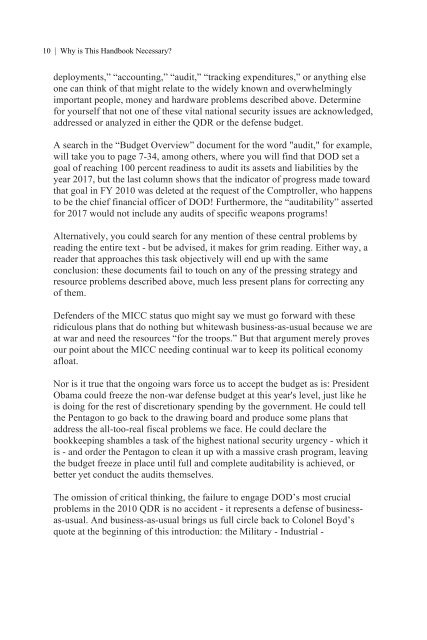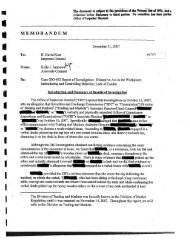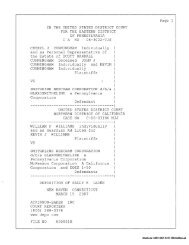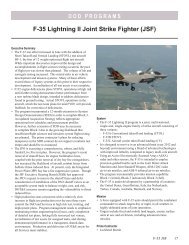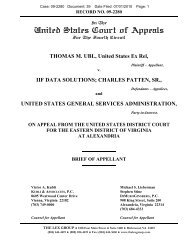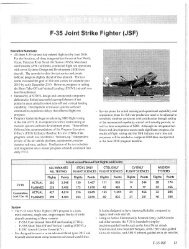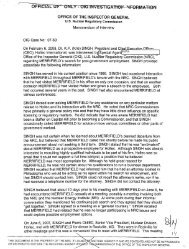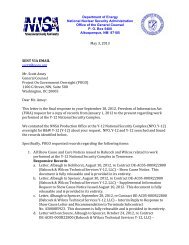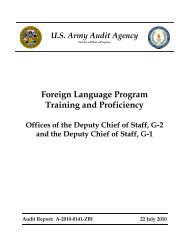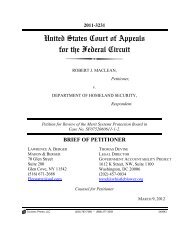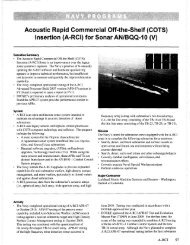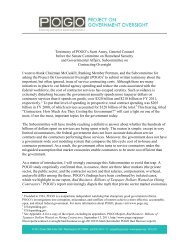The Pentagon Labyrinth
The Pentagon Labyrinth
The Pentagon Labyrinth
You also want an ePaper? Increase the reach of your titles
YUMPU automatically turns print PDFs into web optimized ePapers that Google loves.
10 | Why is This Handbook Necessary?<br />
deployments,” “accounting,” “audit,” “tracking expenditures,” or anything else<br />
one can think of that might relate to the widely known and overwhelmingly<br />
important people, money and hardware problems described above. Determine<br />
for yourself that not one of these vital national security issues are acknowledged,<br />
addressed or analyzed in either the QDR or the defense budget.<br />
A search in the “Budget Overview” document for the word "audit," for example,<br />
will take you to page 7-34, among others, where you will find that DOD set a<br />
goal of reaching 100 percent readiness to audit its assets and liabilities by the<br />
year 2017, but the last column shows that the indicator of progress made toward<br />
that goal in FY 2010 was deleted at the request of the Comptroller, who happens<br />
to be the chief financial officer of DOD! Furthermore, the “auditability” asserted<br />
for 2017 would not include any audits of specific weapons programs!<br />
Alternatively, you could search for any mention of these central problems by<br />
reading the entire text - but be advised, it makes for grim reading. Either way, a<br />
reader that approaches this task objectively will end up with the same<br />
conclusion: these documents fail to touch on any of the pressing strategy and<br />
resource problems described above, much less present plans for correcting any<br />
of them.<br />
Defenders of the MICC status quo might say we must go forward with these<br />
ridiculous plans that do nothing but whitewash business-as-usual because we are<br />
at war and need the resources “for the troops.” But that argument merely proves<br />
our point about the MICC needing continual war to keep its political economy<br />
afloat.<br />
Nor is it true that the ongoing wars force us to accept the budget as is: President<br />
Obama could freeze the non-war defense budget at this year's level, just like he<br />
is doing for the rest of discretionary spending by the government. He could tell<br />
the <strong>Pentagon</strong> to go back to the drawing board and produce some plans that<br />
address the all-too-real fiscal problems we face. He could declare the<br />
bookkeeping shambles a task of the highest national security urgency - which it<br />
is - and order the <strong>Pentagon</strong> to clean it up with a massive crash program, leaving<br />
the budget freeze in place until full and complete auditability is achieved, or<br />
better yet conduct the audits themselves.<br />
<strong>The</strong> omission of critical thinking, the failure to engage DOD’s most crucial<br />
problems in the 2010 QDR is no accident - it represents a defense of businessas-usual.<br />
And business-as-usual brings us full circle back to Colonel Boyd’s<br />
quote at the beginning of this introduction: the Military - Industrial -


